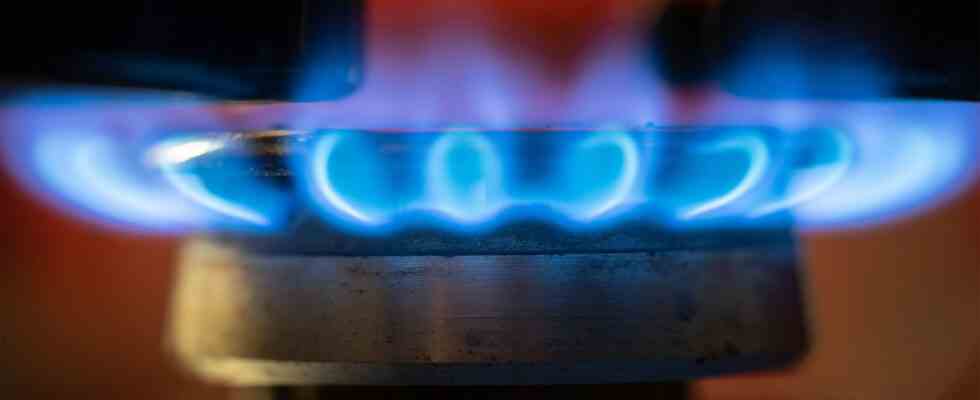Status: 12/30/2022 09:18 a.m
The state is financing the gas price brake through new debt. In order to make them more socially just and not fuel inflation any further, economists are calling for higher taxes for top earners.
Top economists have criticized the federal government’s gas price brake. “The financing of the gas price brake shouldn’t just have been through debt, but at least in part through higher taxes,” said Jens Südekum in an interview with the “Süddeutsche Zeitung”.
“If politicians want to redistribute income, then they should fight with an open visor and also say who they are taking the money from, because in the end someone has to foot the bill,” emphasized the former President of the Ifo Institute, Hans-Werner Sinn , opposite the “SZ”. He himself would burden the higher earners if he could.
Experts criticize the social inequality of the relief
The gas price brake redistributes purchasing power, explained Sinn. However, this would primarily relieve wealthier households that use a lot of gas. In its annual report, the German Council of Experts for the Assessment of Overall Economic Development also called for higher income tax rates to be asked to pay more in order to shoulder the burden of the energy crisis. In a recent “Spiegel” debate, the chairwoman of the Economic Wise Men, Monika Schnitzer, once again defended the committee’s proposal: “We have become poorer as a country, and someone has to foot the bill.”
Other experts had also pointed to a social imbalance in the debate about the gas price brake. Since the calculation basis for the relief of 80 percent of the costs is based on consumption in the past, those consumers who recently consumed the most get the most. In order to persuade the upper income groups to save more, Sebastian Dullien, Scientific Director of the Institute for Macroeconomics and Business Cycle Research (IMK) at the Hans Böckler Foundation, advocates a general upper limit for the number of kilowatt hours funded.
Ramona Pop from the Federation of German Consumer Organizations (vzbv) and Isabella M. Weber from the University of Massachusetts Amherst are also in favor of a minimum quota to which 100 percent of the state-guaranteed gross working price should be applied. This will benefit poorer consumers who have already realized all savings potential in the past. In order to create a social balance, the federal government is planning instead that the relief will be taxable from a certain income threshold.
Price regulation as a driver of inflation?
Top economist Sinn also fears that the current financing of the gas price brake through debt will have an inflationary effect. “Apparently you’re not taking anything away from anyone. But you create demand, and that drives inflation. If not in gas prices, then somewhere else.” Additional purchasing power is coming into the system, according to the economist in the “SZ”.
The effect of the gas price brake on the inflation statistics is just a “sleight of hand,” criticized Sinn. The instrument is “the agreement that we take on all the debt, pay each other’s gas bills with it and then only take the net prices into account in the inflation statistics. A contribution to overcoming the gas shortage is not associated with it.”
Südekum contradicts the theory. Of course, people could spend more on things other than energy as a result of the relief. “But that only stabilizes consumption, which would otherwise have collapsed completely,” emphasizes the Düsseldorf professor. In addition, it can be seen in other countries that price regulation is taming inflation. This is not a trick, but has “an economic sense”: minimizing the consequences of inflation, “such as the risk of a wage-price spiral”.
200 billion euros for price brakes
In mid-December, the Bundestag approved the gas and electricity price brakes. They should take effect from March, but also apply retrospectively to January and February. For households and businesses, this means that by April 2024, 80 percent of the gas consumption of the previous year will be limited to twelve cents per kilowatt hour. For quantities in excess of this, the higher market price acts as an incentive to save. The cap for electricity is 40 cents.
On the one hand, high revenues from energy producers are to be partially skimmed off for financing purposes. On the other hand, an exception to the debt brake was approved in October, with the aim of mitigating the consequences of the increase in energy prices. The federal government can use the special fund to take out additional loans of 200 billion euros.

